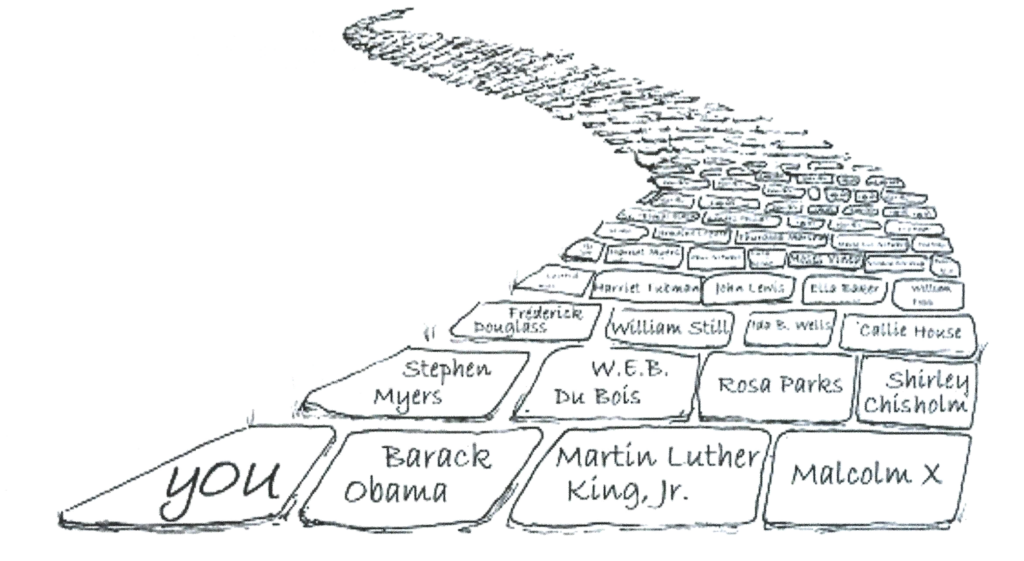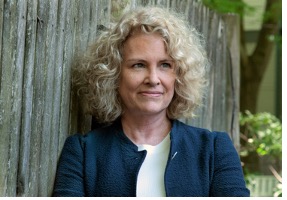January 27 – Urban Renewal and the Issue of Black Reparations
Presented by Dr. David Hochfelder, Associate Professor and Director of the Public History program, SUNY Albany
Between 1950 and 1975, about 1,360,000 people were displaced for federally-funded urban renewal projects. All levels of government (federal, state, and local) spent about $20 billion to finance urban renewal projects in about 1,200 municipalities around the country. A similar number of people were displaced for urban expressway projects in the same time frame. About 60% were nonwhite (as the US Census classified them) and about the same percentage were tenants.
This presentation will discuss efforts to launch reparative justice policies to undo some of the damage that urban renewal and urban expressways inflicted on families and communities.
 David Hochfelder is associate professor of history at University at Albany, SUNY. He and his colleagues Ann Pfau and Stacy Sewell are working on a digital public history of urban renewal in New York State called Picturing Urban Renewal
David Hochfelder is associate professor of history at University at Albany, SUNY. He and his colleagues Ann Pfau and Stacy Sewell are working on a digital public history of urban renewal in New York State called Picturing Urban Renewal


 Join us for a full schedule of amazing presentation workshops, to be held the 4th Saturday of every month from January to October, via Zoom, from 2pm-3pm.
Join us for a full schedule of amazing presentation workshops, to be held the 4th Saturday of every month from January to October, via Zoom, from 2pm-3pm. From Saratoga Springs, Amy Godine is an independent scholar and Adirondack historian. She has been writing about ethnic, Black, migratory, and other non-elite Adirondack communities since 1988. Her book, The Black Woods: Pursuing Racial Justice on the Adirondack Frontier, is just out from Cornell University Press.
From Saratoga Springs, Amy Godine is an independent scholar and Adirondack historian. She has been writing about ethnic, Black, migratory, and other non-elite Adirondack communities since 1988. Her book, The Black Woods: Pursuing Racial Justice on the Adirondack Frontier, is just out from Cornell University Press. Kathy Sheehan is best known as historian for the City of Troy and for Rensselaer County in addition to her work with the staff of
Kathy Sheehan is best known as historian for the City of Troy and for Rensselaer County in addition to her work with the staff of  Kate Clifford Larson is a New York Times Best-Selling Author. Latest release:
Kate Clifford Larson is a New York Times Best-Selling Author. Latest release:  Alan Singer is a social studies educator and historian in the Department of Teaching, Learning and Technology at Hofstra University, Long Island, New York. He is a former New York City high school teacher and regularly blogs on Daily Kos and other sites on educational and political issues. Dr. Singer is a graduate of the City College of New York and has a Ph.D. in American history from Rutgers University. He is the author of Education Flashpoints (Routledge, 2014), Teaching to Learn, Learning to Teach: A Handbook for Secondary School Teachers, 2nd edition (Routledge, 2013), Social Studies For Secondary Schools, 4th Edition (Routledge, 2014), Teaching Global History (Routledge, 2011), New York and Slavery, Time to Teach the Truth (SUNY, 2008), and New York’s Grand Emancipation Jubilee (SUNY, 2018).
Alan Singer is a social studies educator and historian in the Department of Teaching, Learning and Technology at Hofstra University, Long Island, New York. He is a former New York City high school teacher and regularly blogs on Daily Kos and other sites on educational and political issues. Dr. Singer is a graduate of the City College of New York and has a Ph.D. in American history from Rutgers University. He is the author of Education Flashpoints (Routledge, 2014), Teaching to Learn, Learning to Teach: A Handbook for Secondary School Teachers, 2nd edition (Routledge, 2013), Social Studies For Secondary Schools, 4th Edition (Routledge, 2014), Teaching Global History (Routledge, 2011), New York and Slavery, Time to Teach the Truth (SUNY, 2008), and New York’s Grand Emancipation Jubilee (SUNY, 2018). Prior to my current position as the chief curator of history, I served as the senior historian/curator of social history for a decade. My major exhibition and publication projects include Votes for Women: Celebrating New York’s Suffrage Centennial (2017) and An Irrepressible Conflict: The Empire State in the Civil War (2012). I am also the author of Southern Life, Northern City: The History of Albany’s Rapp Road (SUNY Press, 2008), which focused on a community that migrated to Albany from Shubuta, Mississippi, and the greater migration experience in Albany.
Prior to my current position as the chief curator of history, I served as the senior historian/curator of social history for a decade. My major exhibition and publication projects include Votes for Women: Celebrating New York’s Suffrage Centennial (2017) and An Irrepressible Conflict: The Empire State in the Civil War (2012). I am also the author of Southern Life, Northern City: The History of Albany’s Rapp Road (SUNY Press, 2008), which focused on a community that migrated to Albany from Shubuta, Mississippi, and the greater migration experience in Albany. Deirdre Sinnott is a novelist, filmmaker, historian and social change activist. Currently, she is researching the early history of the oldest African American church in the Mohawk Valley. She was a historical consultant and researcher for the Ft. Stanwix Underground Railroad History Project, funded by the National Parks Service and has spoken extensively about Utica’s abolition history. Her historical novel, “The Third Mrs. Galway” is set in 1835 in her native Utica, New York.
Deirdre Sinnott is a novelist, filmmaker, historian and social change activist. Currently, she is researching the early history of the oldest African American church in the Mohawk Valley. She was a historical consultant and researcher for the Ft. Stanwix Underground Railroad History Project, funded by the National Parks Service and has spoken extensively about Utica’s abolition history. Her historical novel, “The Third Mrs. Galway” is set in 1835 in her native Utica, New York. Judith Wellman focuses on historic sites relating to women’s rights, the Underground Railroad, and African American life. She is the author of many scholarly articles, more than a dozen cultural resource surveys, more than thirty National Register nominations, thirty-five nominations to the National Park Service’s Underground Railroad Network to Freedom, and four books: Brooklyn’s Promised Land: Weeksville, a Free Black Community (New York University Press, 2014),The Road to Seneca Falls: Elizabeth Cady Stanton and the Beginning of the Women’s Rights Movement. (University of Illinois Press, 2004), Grassroots Reform in the Burned-over District of Upstate New York: Religion, Abolitionism and Democracy (Garland Press, 2000), and Landmarks of Oswego County, Editor (Syracuse University Press, 1988). Dr. Wellman was the first historian at Women’s Rights National Historical Park. She lives in a house built on the banks of a millpond about 1830 by an African American miller. She views historical work relating to equal rights as a contribution to a future of mutual respect and justice for all people.
Judith Wellman focuses on historic sites relating to women’s rights, the Underground Railroad, and African American life. She is the author of many scholarly articles, more than a dozen cultural resource surveys, more than thirty National Register nominations, thirty-five nominations to the National Park Service’s Underground Railroad Network to Freedom, and four books: Brooklyn’s Promised Land: Weeksville, a Free Black Community (New York University Press, 2014),The Road to Seneca Falls: Elizabeth Cady Stanton and the Beginning of the Women’s Rights Movement. (University of Illinois Press, 2004), Grassroots Reform in the Burned-over District of Upstate New York: Religion, Abolitionism and Democracy (Garland Press, 2000), and Landmarks of Oswego County, Editor (Syracuse University Press, 1988). Dr. Wellman was the first historian at Women’s Rights National Historical Park. She lives in a house built on the banks of a millpond about 1830 by an African American miller. She views historical work relating to equal rights as a contribution to a future of mutual respect and justice for all people. Karolyn Smardz Frost’s work in Black transnationalism began in 1985, when, as founding director of Toronto’s Archaeological Resource Center, she and her team worked with 3,000 schoolchildren at the first Underground Railroad site dug in Canada. Karolyn is the only Canadian archaeologist with a specialized doctorate in History (Race, Slavery and Imperialism).
Karolyn Smardz Frost’s work in Black transnationalism began in 1985, when, as founding director of Toronto’s Archaeological Resource Center, she and her team worked with 3,000 schoolchildren at the first Underground Railroad site dug in Canada. Karolyn is the only Canadian archaeologist with a specialized doctorate in History (Race, Slavery and Imperialism). Dr. Jan DeAmicis is an historical sociologist with interests in the experience of race and ethnicity. His recent research is reflected in the Underground Railroad project in which he utilizes historical and archaeological data to analyze this important institution in the history of upstate New York.
Dr. Jan DeAmicis is an historical sociologist with interests in the experience of race and ethnicity. His recent research is reflected in the Underground Railroad project in which he utilizes historical and archaeological data to analyze this important institution in the history of upstate New York.